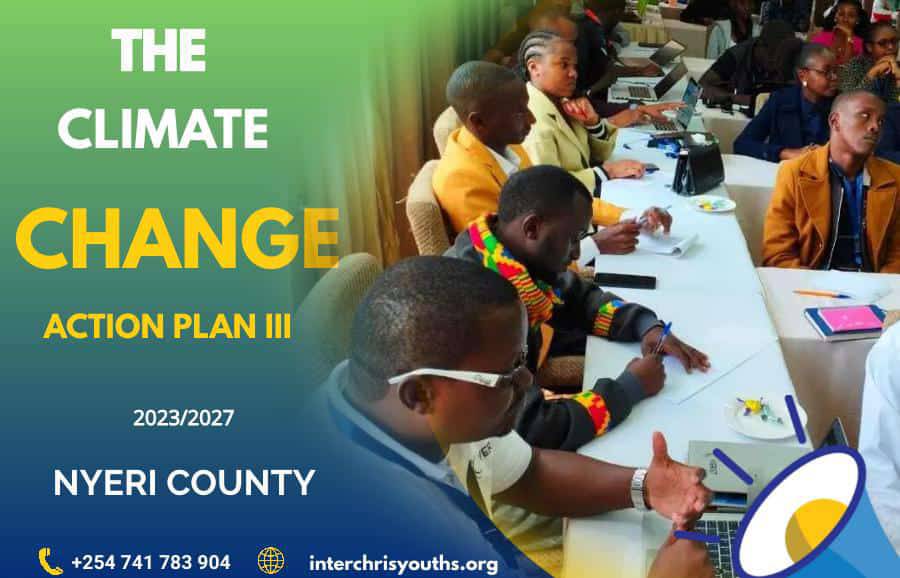Advancing Kenya's Climate Justice Agenda

INTERCHRIS Foundation stepped onto the national stage with a bold vision: to ensure that Kenya’s climate policies reflect the realities, insights, and ambitions of its youth. Our participation in the National Climate Change Action Plan III (NCCAP III) Workshop in Nyeri was more than a milestone, it was a defining moment in our ongoing commitment to climate justice and inclusive governance. As a youth-led and community-rooted organization, INTERCHRIS Foundation understands the disconnect that often exists between policy formulation and grassroots action. Our involvement in the NCCAP III process was driven by a mission to bridge this gap, ensuring that young people are not only consulted but actively involved in crafting solutions that work for local communities. Kenya’s National Climate Change Action Plan (2023–2027) commonly referred to as NCCAP III outlines the country’s strategic response to the climate crisis. It focuses on building resilience, lowering greenhouse gas emissions, and integrating climate risk into development plans. Critically, NCCAP III recognizes the need to engage youth, women, and marginalized groups in climate governance, an area where INTERCHRIS Foundation is already leading by example. At INTERCHRIS, our approach is twofold: we influence policy at the top, while implementing solutions at the grassroots. Our engagement with NCCAP III catalyzed a series of initiatives that continue to shape climate resilience efforts in Nakuru County and beyond:
- Youth Policy Advocacy Trainings: We’ve trained young climate advocates to interpret policy documents, participate in public planning processes, and engage with decision-makers. This ensures youth are not sidelined, but empowered to co-lead on issues like adaptation, biodiversity, and land restoration.
- Local Climate Adaptation Projects: From reforesting degraded areas in Rongai to river restoration in in Nakuru East and Njoro, we’ve transformed policy intentions into real-world impact, mobilizing tree plantings, growing and monitoring and creating green jobs in the process.
- Strategic Partnerships: Our collaboration with Water Resource Users Associations, (WRUAs), Ward Climate Change Planning Committees, Flower Farms, and Nakuru County Government helps translate national ambitions into community-specific programs. These partnerships anchor our efforts in local realities while amplifying our influence at higher levels.
Too often, youth engagement in climate policy is symbolic. INTERCHRIS Foundation is changing that narrative. Our representation of civil society organizations in climate change committees and our consistent presence in climate forums ensures that youth perspectives shape not just dialogue, but outcomes. We champion inclusive approaches that bring the voices of young farmers, climate activists, students, and entrepreneurs into spaces where decisions are made. While our participation in NCCAP III marked a strong beginning, our journey is far from over. INTERCHRIS Foundation remains steadfast in pushing for:
- Budgetary allocations for youth-led climate initiatives
- Monitoring mechanisms that track youth inclusion in policy execution
- Community-driven approaches in mitigation and adaptation planning
Kenya’s climate future must be co-authored by those who will inherit it. We believe that youth are not just beneficiaries of policy—they are catalysts, implementers, and watchdogs of climate action.